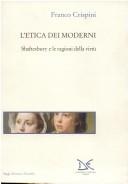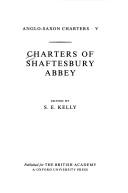| Listing 1 - 10 of 11 | << page >> |
Sort by
|
Book
ISBN: 2745302566 9782745302564 Year: 2000 Volume: 45 Publisher: Paris: Honoré Champion,
Abstract | Keywords | Export | Availability | Bookmark
 Loading...
Loading...Choose an application
- Reference Manager
- EndNote
- RefWorks (Direct export to RefWorks)
Book
ISBN: 2130495524 9782130495529 Year: 1998 Volume: *9 Publisher: Paris: Presses Universitaires de France,
Abstract | Keywords | Export | Availability | Bookmark
 Loading...
Loading...Choose an application
- Reference Manager
- EndNote
- RefWorks (Direct export to RefWorks)

ISBN: 9788879896153 8879896156 Year: 2000 Publisher: Roma: Donzelli,
Abstract | Keywords | Export | Availability | Bookmark
 Loading...
Loading...Choose an application
- Reference Manager
- EndNote
- RefWorks (Direct export to RefWorks)

ISBN: 0197261515 9780197261514 Year: 1996 Volume: 5 Publisher: Oxford: Oxford university press,
Abstract | Keywords | Export | Availability | Bookmark
 Loading...
Loading...Choose an application
- Reference Manager
- EndNote
- RefWorks (Direct export to RefWorks)
Cartulaires --- Cartularia --- Cartularies --- Monasticism and religious orders --- Anglo-Saxons --- History --- Sources --- Shaftesbury Abbey (Shaftesbury, England) --- Charters --- 271.1 <420 SHAFTESBURY> --- -Monasticism and religious orders --- -Monachism --- Monastic orders --- Monasticism and religious orders for men --- Monasticism and religious orders of men --- Orders, Monastic --- Religious orders --- Brotherhoods --- Christian communities --- Brothers (Religious) --- Friars --- Monks --- Superiors, Religious --- Saxons --- Benedictijnen--Engeland--SHAFTESBURY --- -Sources --- -Charters, grants, privileges --- -Benedictijnen--Engeland--SHAFTESBURY --- 271.1 <420 SHAFTESBURY> Benedictijnen--Engeland--SHAFTESBURY --- Monachism --- Orders, Religious --- History&delete& --- Charters. --- Shaftesbury (Abbey) --- Archival resources --- Charters, grants, privileges --- Monasticism and religious orders - England - Shaftesbury - History - Middle Ages, 600-1500 - Sources --- Anglo-Saxons - England - Shaftesbury - Sources
Book
ISBN: 9781350077751 9781350077768 9781350077775 1350077755 Year: 2019 Publisher: London: Bloomsbury academic,
Abstract | Keywords | Export | Availability | Bookmark
 Loading...
Loading...Choose an application
- Reference Manager
- EndNote
- RefWorks (Direct export to RefWorks)
Providing a gateway to a new history of modern aesthetics, this book challenges conventional views of how art's significance developed in society.The 18th century is often said to have involved a radical transformation in the concept of art: from the understanding that it has a practical purpose to the modern belief that it is intrinsically valuable. By exploring the ground between these notions of art's function, Karl Axelsson reveals how scholars of culture made taste, morals and a politically stable society integral to their claims about the experience of nature and art. Focusing on writings by two of the most prolific men of letters in the 18th century, Joseph Addison (1672-1719) and the third Earl of Shaftesbury (1671-1713), Axelsson contests the conviction that modern aesthetic autonomy reoriented the criticism and philosophy originally prompted by these two key figures in the history of aesthetics. By re-examining the political relevance of Addison and Shaftesbury's theories of taste, Axelsson shows that first and foremost they sought to fortify a natural link between aesthetic experience and modern political society.
Shaftesbury, of, Anthony A.C. --- Addison, Joseph --- Aesthetics --- Taste --- Political science --- Political aspects --- Philosophy --- Addison, Joseph, --- Shaftesbury, Anthony Ashley Cooper, --- Aesthetics - Political aspects --- Taste - Philosophy --- Political science - Philosophy --- Addison, Joseph, - 1672-1719 --- Shaftesbury, Anthony Ashley Cooper, - comte, - 1671-1713
Book
ISBN: 2745300059 9782745300058 Year: 1999 Volume: 36 Publisher: Paris: H. Champion,
Abstract | Keywords | Export | Availability | Bookmark
 Loading...
Loading...Choose an application
- Reference Manager
- EndNote
- RefWorks (Direct export to RefWorks)
Shaftesbury, Anthony Ashley Cooper, --- Aesthetics. --- Social interaction. --- Social ethics. --- 7.01 --- 1 SHAFTESBURY, ANTHONY ASHLEY COOPER, Earl of --- Esthetica. Kunstfilosofie. Kunsttheorie. Algemene problemen inzake kunst --- Filosofie. Psychologie--SHAFTESBURY, ANTHONY ASHLEY COOPER, Earl of --- 7.01 Esthetica. Kunstfilosofie. Kunsttheorie. Algemene problemen inzake kunst --- 1 SHAFTESBURY, ANTHONY ASHLEY COOPER, Earl of Filosofie. Psychologie--SHAFTESBURY, ANTHONY ASHLEY COOPER, Earl of --- Shaftesbury, Anthony Ashley Cooper --- Aesthetics [British ] --- 17th century --- 18th century --- Aesthetics --- Social interaction --- Social ethics
Book
ISBN: 2130535771 9782130535775 Year: 2005 Volume: 181 Publisher: Paris: PUF,
Abstract | Keywords | Export | Availability | Bookmark
 Loading...
Loading...Choose an application
- Reference Manager
- EndNote
- RefWorks (Direct export to RefWorks)
Ethics, Modern --- Conscience --- Morale moderne --- Conscience (Morale) --- Shaftesbury, Anthony Ashley Cooper,
Book
ISBN: 2864600684 9782864600688 Year: 1985 Publisher: Lille: Atelier national de reproduction des thèses,
Abstract | Keywords | Export | Availability | Bookmark
 Loading...
Loading...Choose an application
- Reference Manager
- EndNote
- RefWorks (Direct export to RefWorks)
Book
ISBN: 3825310213 9783825310219 Year: 2000 Volume: 277 Publisher: Heidelberg: Winter,
Abstract | Keywords | Export | Availability | Bookmark
 Loading...
Loading...Choose an application
- Reference Manager
- EndNote
- RefWorks (Direct export to RefWorks)
Natural theology --- Cambridge Platonists. --- History of doctrines --- 1 SHAFTESBURY, ANTHONY ASHLEY COOPER, Earl of --- 283*22 --- Cambridge Platonists --- -Natural religion --- Theology, Natural --- Apologetics --- God --- Religion --- Religion and science --- Theology --- Philosophy of nature --- Platonists --- Filosofie. Psychologie--SHAFTESBURY, ANTHONY ASHLEY COOPER, Earl of --- Anglicanisme: Cambridge Platonicians --- -Shaftesbury, Anthony Ashley Cooper Earl of --- -Filosofie. Psychologie--SHAFTESBURY, ANTHONY ASHLEY COOPER, Earl of --- 283*22 Anglicanisme: Cambridge Platonicians --- 1 SHAFTESBURY, ANTHONY ASHLEY COOPER, Earl of Filosofie. Psychologie--SHAFTESBURY, ANTHONY ASHLEY COOPER, Earl of --- -283*22 Anglicanisme: Cambridge Platonicians --- Natural religion --- Shaftesbury, Anthony Ashley Cooper, --- Agent from the K. of Poland, --- Anthony, --- Ashley, Anthony Ashley Cooper, --- Cooper, Anthony Ashley, --- E. of Sh --- --E. S. --- E., T., --- Noble peer of the realm, --- Parliament man, --- Protestant peer of the realm of England, --- S., E. --- Sh--, --- Shaftesbury, --- Shaftsbury, Anthony Ashley Cooper, --- Shaftsbury, --- T. E., --- Toney, --- Natural theology - History of doctrines - 17th century.
Book
ISBN: 3495473386 9783495473382 Year: 1976 Volume: 53 Publisher: Freiburg: Alber,
Abstract | Keywords | Export | Availability | Bookmark
 Loading...
Loading...Choose an application
- Reference Manager
- EndNote
- RefWorks (Direct export to RefWorks)
Cosmology --- Subjectivity --- Shaftesbury, Anthony Ashley Cooper, --- Knowledge, Theory of --- Subjectivism --- Relativity --- Epistemology --- Theory of knowledge --- Philosophy --- Psychology --- Astronomy --- Deism --- Metaphysics --- Locke, John --- Shaftesbury, Anthony Ashley Cooper Earl of --- ロック --- 로크 --- Locke, John, --- Shaftesbury, Anthony Ashley Cooper, - Earl of, - 1671-1713 - Philosophical regimen
| Listing 1 - 10 of 11 | << page >> |
Sort by
|

 Search
Search Feedback
Feedback About UniCat
About UniCat  Help
Help News
News